

of the River
of Oyster River High School Spring 2023 03
Mouth
Publication
Features Sports & Culture
Doomscrolling pg. 3
Greg pg. 7
Sleep Habits pg. 9
Dudley pg. 11
Chess pg. 14
CATS pg. 16
Dear Reader,
Breakfast pg. 30
Comfort Shows pg. 26
Rowing pg . 28
Changes pg. 6
65 Questions pg. 19
Secret Spaces pg. 20
Extracurriculars pg. 22
We are excited to present our third issue of Mouth of the River for the 2022-2023 school year! In addition to working hard on creating this magazine, our staff got to spend three days in New York City at the Columbia Scholastic Press Association’s 99th annual Spring Convention for the first time since before the pandemic.
Our staff attended conference sessions at the convention about all aspects of journalism and were inspired to try some new changes for our magazine. Along with shooting our bylines in Central Park, you’ll notice that we adjusted our table of contents to highlight the many multimedia articles in this issue. Make sure to learn about high school expectations from Ava Gruner’s video, secret spaces around ORHS with Grace Webb and Libby Davidson’s podcast, unique extracurriculars from Micah Bessette’s photojournalism article, and Principal Noe from Sarah Laliberte and Hazel Stasko’s video.
With so much media, we also decided to make a colorful cover! Our front cover, shot by Mia Boyd, reflects the reality of doomscrolling on social media in high schoolers’ lives, which was covered by Justin Partis. Be sure to check it out on page 3. Our back cover, shot by Micah Bessette, keeps the bright colorful theme going and was inspired by topics from several other articles—can you tell which ones?
Along with multimedia, this issue emphasizes the many ways students spend their time at ORHS. Starting in the morning with Abby Deane’s article on breakfast, readers can learn about all sorts of extracurriculars and activities like CATS classes at UNH and the Great Bay Rowing team.
We hope you enjoy our magazine!
Sincerely,
Libby Davidson, Tess Brown, and Zoe Selig
Contents
TABLE OF CONTENTS
Multimedia
Mouth of the River Mission Statement

Mouth of the River seeks to reliably inform the student body, as well as the surrounding community, of interesting and newsworthy content in a modern, compelling format. Our goal as a staff is to give voice to the students of Oyster River, and have it heard by all our students. The opinions expressed in Mouth of the River represent those of the writers and staff.












 Tess Brown (she/her) ('23) Co-Editor in Chief
Libby Davidson (she/her) ('23) Co-Editor in Chief
Zoe Selig (she/her) ('23) Co-Editor in Chief
Micah Bessette (he/him) ('24) Media Editor
Mia Boyd (she/her) ('24) Subscriptions & Distribution Manager
Abby Deane (she/her) ('23) Sports & Culture Editor
Ava Gruner (she/her) ('23) Social Media/Website Manager
Sarah Laliberte (she/her) ('23) Marketing Director
James Li (he/him) ('24) Archive Manager
Delaney Nadeau (she/her) ('24) Events Coordinator
Abby Owens (she/her) ('24) News Editor
Justin Partis (he/him) ('23) Features Editor
Hazel Stasko (she/her) ('24) Layout Editor
Grace Webb (she/her) ('23) Opinion Editor
Tess Brown (she/her) ('23) Co-Editor in Chief
Libby Davidson (she/her) ('23) Co-Editor in Chief
Zoe Selig (she/her) ('23) Co-Editor in Chief
Micah Bessette (he/him) ('24) Media Editor
Mia Boyd (she/her) ('24) Subscriptions & Distribution Manager
Abby Deane (she/her) ('23) Sports & Culture Editor
Ava Gruner (she/her) ('23) Social Media/Website Manager
Sarah Laliberte (she/her) ('23) Marketing Director
James Li (he/him) ('24) Archive Manager
Delaney Nadeau (she/her) ('24) Events Coordinator
Abby Owens (she/her) ('24) News Editor
Justin Partis (he/him) ('23) Features Editor
Hazel Stasko (she/her) ('24) Layout Editor
Grace Webb (she/her) ('23) Opinion Editor
2 Staff
Doomscrolling.

While working on a project, you glance down at your phone. Instead of ignoring it, you think to yourself: It’s only 7:00 pm, I can take a break. You open Instagram. You open TikTok. You open something. You like the first video, then the second. Not the third, but maybe the fourth. Fifth. Sixth. Seventh. Seventeenth. Seventieth. You look up from your phone to your laptop, where your cursor has sat idle for the last two and a half hours, and wonder: Whathappened?

If you use social media, you’ve probably experienced it: hours spent scrolling mindlessly on an app you resent but continue to use. I’m no exception. After years of using TikTok, I got sick of the algorithms and the advertising. I deleted it, thinking that it would solve my issue, only to continue my scrolling on Instagram instead. In fact, just writing this paragraph I’ve already checked my phone. Is it psychology? Software? Society? Why do I check my phone even when I know I shouldn’t?
I thought maybe it was just me. Maybe I just had a social media ‘addiction.’ But, talking with classmates, I realized I’m far from the only one who’s caught themselves getting distracted by social media from time to time—or all the time. For Elizabeth Walent (‘23), if her phone isn’t hidden in her backpack, she runs the risk of getting distracted during class. Doing homework, she says, “I’ll try to put my phone away from me so that it’s not within arm’s reach.”
I’ve always struggled with time management and procrastination, and having my phone on my desk while doing homework doesn’t help that issue. When I first started using Instagram, it was simply a way to see what my friends were up to. Now when I open the app it’s hard to set my phone down again, and I rarely see a post from someone I actually know. Just one more post turns into just ten more minutes, which turns into a sleepless night and overdue schoolwork.
Why Does It Happen?
That distraction wouldn’t be so much of an issue if social media platforms weren’t so good at keeping you engaged after you start scrolling. I spoke with Dr. Joan Glutting, professor of clinical psychology at the University of New Hampshire (UNH), to try and figure out why my peers and I couldn’t keep our eyes off social media. According to Glutting, the reason is that “social media works just like gambling.” Behaviorism—the study of why humans do what they do—outlines that humans do things for the outcomes, or rewards, of those things. Social media presents you with content that you’re interested in the same way that a teacher may present you with candy when you decide to answer a question in class.
Social media keeps us engaged by making us gamble. However, rather than money, we gamble our time. You don’t know if
3 Features
“The data is clear that most [social media] makes people feel anxious and uncomfortable.”
the next post you’ll see will be interesting or rewarding to you, but you scroll anyways because you know that feeling of reward—even the tiniest burst of dopamine—will show up eventually. “You don’t know when you’re going to get the thing, you don’t know how many times you have to respond before you get the thing, which makes you respond a lot. People who run casinos know this,” says Glutting. Although there is no medical definition for a social media addiction, gambling addictions are very real.
How Does It Happen?
their knowledge of why social media is so effective at keeping us engaged, they still found themselves drawn to the platforms.
Part of the reason that people don’t realize others have the same issues they do with social media is that many people simply don’t admit it. Stetson told me that I was one of the first students she’d heard admit that social media was a major distraction. “I don’t ever hear students talking about it, or saying, ‘I didn’t get my homework done because I was up scrolling on TikTok all night.’” It still hap-
media works just like gambling.”
This concept is programmed into social media platforms. Cathi Stetson, computer science teacher at Oyster River High School (ORHS), says social media platforms save “your search history and [learn] your likes and your interests, and it creates a program that pushes out the information that you like to see.” Platforms then use what they learn about you to keep you engaged in the content that you’re viewing. They keep you engaged long enough for you to see advertisements, generating revenue for the company while you scroll. Once an app’s algorithm has developed a profile of your interests, learned what you’re more likely to keep watching, and learned how long you’re willing to scroll, the app is able to keep you engaged for longer and longer.
This personalization drives doomscrolling. Normally associated with negative news media, doomscrolling refers to a mindless and prolonged intake of information on social media. According to Glutting, “the data is clear that most [social media] makes people feel anxious and uncomfortable.” Yet many people, including myself, still scroll away.
Your social media feed is meant to keep you engaged, and negative information does just that. Content meant to make you upset, angry, discontent, or depressed is more likely to spark a reaction from you than positive and uplifting content, and your reaction online consequently teaches social media platforms to show you more negative information. This cycle creates a very engaging and very personal feed of information, mixing posts from news organizations, influencers, your friends and family, and advertisers in a way that you might not even notice. As a result, you may find yourself doomscrolling for hours on end as social media algorithms find better and better ways to keep you watching.
pens—students like myself struggle with time management and procrastination—but students just don’t like to admit it when that’s the reason their work is late.
What Are the Impacts?
Doomscrolling fuels the fire of procrastination. In the shortterm, scrolling on social media may be an easy escape from an assignment or other stress-inducing responsibility. However, using social media instead of doing work just makes the issue bigger for your future self, creating long-term stress in exchange for shortterm pleasure.
As it turns out, doomscrolling affects more people than just teenagers. Stetson admits to falling asleep watching TikTok some nights. Glutting deleted Facebook, but still sometimes checks her husband’s account despite her resentment of the platform. Despite
Using social media to escape goes beyond just escaping responsibility. According to Glutting, “It’s a way in which people avoid awkward moments, being alone, social anxiety. So, it becomes really rewarding to check your texts instead of dealing with the fact that you might have to do something uncomfortable, like saying, ‘hey, can I sit with you for lunch?’ or whatever it is you are avoiding.”
Using social media to avoid responsibility, connection, anxiety, or anything for that matter, creates unhealthy habits. “It’s remarkably rewarding in the short run. In the long run, […] it just makes everything worse,” says Glutting.
I’ve noticed in my own life that the biggest concern of social media is constant accessibility. The biggest distraction in my life lives in my pocket. As someone who both procrastinates too much and stresses too much, being constantly exposed to applications that know exactly how to distract me, and, more importantly, how to keep me distracted, is incredibly harmful.
Moreover, the bombardment of information that social media provides at any given time is mind-numbing. “It’s relentless, right? It used to be that you’d go to school, whatever interactions you had,
4 Features
“Social
“It’s remarkably rewarding in the short run. In the long run, […] it just makes everything worse.”
“It’s relentless, right?”
you went home, you hung out with whomever you wanted to hang out with, talked on the phone. But now, it is this twenty-four-hoursa-day to be socially engaged with people,” says Glutting. Constant social interaction, paired with the emotional overload of negative news, is debilitating.
Plus, despite providing exposure to social interaction twenty-four hours a day, social media actually distances communication. There’s no interpersonal, face-to-face connection when you like a TikTok or Instagram post, or when you send a Snapchat or text message. That lack of direct interpersonal interaction fosters loneliness and social anxiety.
What Can We Do?
By curating the ways that we use social media, we can mitigate the effects it has. I’ve started by setting a daily time limit on Instagram and by charging my phone on my desk—rather than my nightstand—when I’m sleeping at night. This prevents me from doomscrolling for hours on end, especially before going to sleep at night (with the added benefit of forcing me to get up out of bed to shut my alarm off in the morning), and subsequently helps prevent me from procrastinating by using social media.

Another good step is curating the social media platforms you use—and how you use them—which can help improve the impacts social media has on your mental health. For example, you could try getting news from trusted, unbiased journalists outside of social media, helping alleviate the confirmation bias and negativity commonly found on social media platforms in an effort to make you react to something. Another example is, instead of Instagram, using an app like VSCO for sharing and viewing photography. VSCO has no advertising or news media, its posts are shown in a strictly chronological order, and only you can see who likes your posts, all of which help eliminate any unneeded exposure to an algorithm’s negative, engagement-driven curation of information.
Lastly, taking a break from social media can help you realize how it affects you. If you’ve used a certain platform daily for months, try taking a few days off. See how you feel, and then decide whether to continue using the software. Being mindful of the ways that social media impacts you can help you figure out which platforms are worth using—and which aren’t—and allows you to curate your own experience on social media, rather than letting social media companies curate it for you.
So, the next time you’re doing homework and reach for your phone, realize that taking a short break on social media may not be worth it. “It’s a tricky thing,” says Glutting, “but I think it’s really important that we all think about what we’re doing a little more, rather than just doing it.”

5 Features
- Justin Partis
“It’s really important that we all think about what we’re doing a little more, rather than just doing it.”
The


things we expected...
The memories we’ll leave with...
C h
ang e s



How has high school changed you?


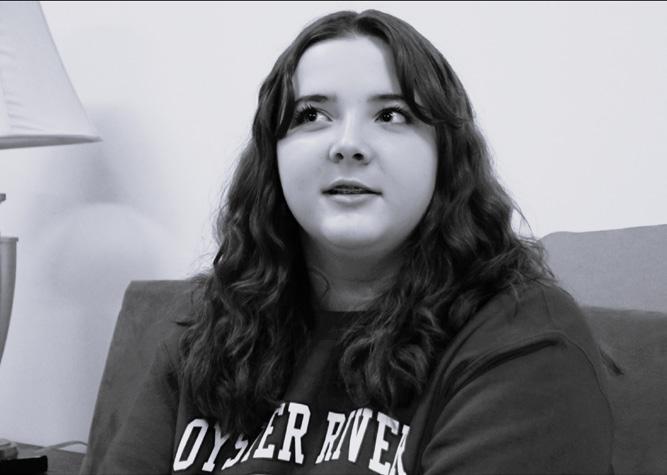

6 Multimedia
GRE•Gar•i•ous /ɡrəˈɡerēəs/
adjective
adjective: gregarious

having red hair; being tall;
one in the school.
High above the sea of students streaming through the halls of Oyster River High School (ORHS) stands a recognizable lighthouse: tall, smart, and very ginger.

As soon as you meet Greg Caron (‘25), you quickly realize he is unlike anyone else you’ve ever met. A self-proclaimed “cool nerd,” Greg is a well-known character in the halls of ORHS. For those who aren’t as familiar with him, here are a few words to describe him: quirky, funny, nerdy, tall, and genuine.

I first met Greg last year. I don’t exactly know how, but all of a sudden, we become friends and I haven’t been able to get rid of him since. My friends, Emily Walsh (‘24) and Maeve Hickok (‘24), knew Greg, which led to him frequently visiting us during our lunch study. Greg became a key part of the “Chicks with Kicks” group chat in which he, Emily, Maeve, and I would send photos of our shoes to one another, often making Greg guess whose shoes were whose. While he frequently guessed wrong, his contributions to the group were invaluable.
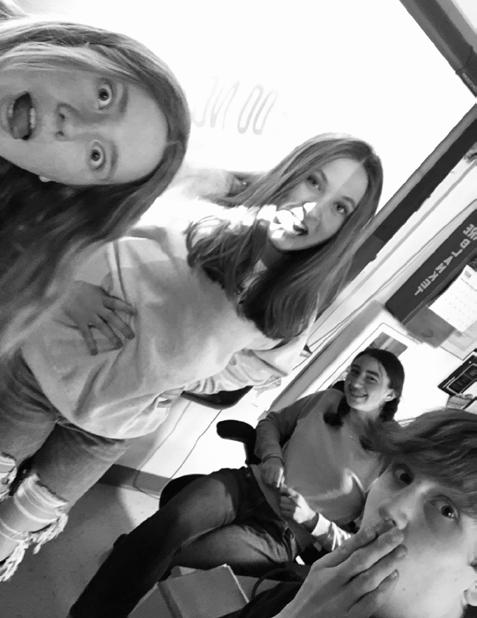
These times spent with Greg are what gave me a better understanding of his sense of humor: slightly outof-pocket (and borderline rude), but in a good way. He’s the kind of friend you want to have around because, no matter what, he will always get you to crack a smile.

Throughout the time I have known Greg, I have come to learn about his obsessive Duolingo phase, his lack of basketball knowledge, his enjoyment of driving, his affinity for music, and how annoyingly smart he is (which comes in handy when you need help with math homework). “I love ABBA. I genuinely love ABBA,” Greg said when I asked about his music taste, his favorite song being SOS.
I also learned that he goes through many phases where he is extremely interested in a particular thing, but his interest in education has stood the test of time.


7 Features
First Piano Recital
known by every-
Chicks with Kicks
Me
My favorite teacher <3
HOCO
Greg considers his education “incredibly important, because it’s your future.” He has always been studious and diligent with his work, despite the fact that, according to his mother, Carrie Caron, academics haven’t always come easy to him. Greg rebuts that statement, saying that when he was younger, “I wasn’t trying because it didn’t matter.”

Why do people know who Greg is? After all, he was once shy and quiet according to his mother. However, in high school, he is often credited as one of the most social students. “I like talking to people. It brings me joy,” Greg said. He hopes that others around the school think positively of him and thinks that he has a “known” presence around the high school. Hickok spoke of her friend saying, “when you know Greg, for instance passing him in the hallway, your first thought is, ‘Oh, it’s Greg what a nice surprise.’ Your second thought is, ‘Where is Greg supposed to be?’” Even though Greg seems to know everyone, he does have a core group of close friends in his grade.
Greg’s friend group refers to him as funny, sociable, and a little bit quirky. Now that Greg has his license, they enjoy going on skateboarding adventures, thrifting, or to one another’s houses. Andreas Cox (‘25), mentioned his friend’s “life of crime,” which jokingly refers to the amount of time that Greg spends walking into Cox’s room uninvited.

Quickly into high school, his friend Eleanor Raspa (‘23) told him about crew. Greg’s minimal athletic experience didn’t keep him from quickly discovering his enjoyment and skill for the sport. “He has [a] crew body. He’s tall and lanky with long arms,” his mom said. Now he either rows or does crew-adjacent training five days a week.




Greg also knows how to fly, and holds his junior pilot’s license. His family doesn’t really know where the whole flying thing came from, but suspects that their family’s love of travel led him to take up an interest in planes. One day around eighth grade, he asked his parents if he could take flying lessons. Now he gets out to fly once every two or three weeks, depending on the weather, and loves the new perspective of being in the sky. That is also one of the reasons he loves rowing. “The water is nice, serene, and secluded. It’s just you doing what you can do,” Greg said.
Greg hasn’t always been this social, outgoing, and silly nerd; as a kid, he was quiet and timid. He played piano, following in his brother Nate’s footsteps. Before his first recital, he says he “was a nervous wreck. I remember seeing my hands shaking and I don’t think I have seen them shake so much since.”
Greg isn’t quite sure where his life may take him, but hopes to “be happy, be rich, or be both.” I immediately asked if he’d really rather be rich but unhappy, and he responded in very ‘Gregory’ fashion: “Well, if that’s what it takes.”
 - Delaney Nadeau ImagesCourtesyofGregCaron
- Delaney Nadeau ImagesCourtesyofGregCaron
8 Features
ANDREAS! C R E W littleginger in nature
How To Catch More Zzz’s

As I type this at 1 AM, all I can think about is how comfy my bed looks, and how nice it would’ve been to get in bed at a decent hour. It seems relatively simple in concept, but I can somehow never pull it off.
High school students are notorious for going to bed late. In fact, a recent poll on the Mouth of the River Instagram asked viewers if they have good sleep habits, and 85% out of 40 responses said no. This number wasn’t a huge surprise, but I was curious about the 15% that said yes. How do they do it? I wanted to know what these students were doing to maintain consistent sleep.

I also wanted to know why sleep is so important, so I asked a professional. Kimberly Wolph, the head nurse at ORHS, told me that sleep can help with “hormonal regulation, it’ll certainly help with mood, irritability, generalized better health as a whole, […] and less chance of becoming sick.”
For as long as I can remember, I’ve never had a consistent bedtime and have always had terrible sleep habits. I’ve recently been noticing how getting little sleep affects my day and have been wondering what I can do to improve.
I’m a very busy person, and I’m always doing something after school, so I don’t usually get home until later, which
leaves little time for homework before bed. I wanted to hear how other students manage their time, and Alessandro Garofalo (‘24) had some good advice. “One of the things that I’ve done that’s really helped is just developing a routine day to day that allowed me to get everything done.”
Sure, developing a routine sounds easy, but the part I’ve always struggled with is beginning one. Cayden Giordani (‘24), found a great trick. “I found that setting alarms and reminders helped me get started with the schedule. Once I was in that [schedule], it was pretty easy to stay with.”
Homework is usually the task that pushes into my sleep time. When I get home, usually around five, I just want to sit on the couch and do nothing for an hour. The problem is, an hour becomes two, and before I know it it’s ten o’clock. Maryellen Moore (‘24), has figured out the trick to getting homework done before bed. “I never do homework at night. I get it done either right when I get home from school, I do it at school, or before dinner. Usually, I try not to do homework past nine.”
Giordani, who has a busy after school schedule because of sports, has his own method to get homework done before bed. “I try after school, after a little bit of a break, to get as much [homework] done [as possible]. If I can’t get it all done that evening, […] I’ll get the most important stuff done to where I can do stuff in the morning or during a flex.”
The most important thing I’ve noticed that everyone with good sleep habits have, like Atreyu Kleczek (‘25), is good time management. “Since I take the bus, I usually do my homework on the bus.”
9 Features
I also found that everyone with good sleep habits gets their homework done in the flex blocks during the school day, so that they don’t have to after school. That may seem obvious, but it’s not as easy as it sounds to someone who is easily distracted. I’ve found what works best is finding a quiet room to get work done and listening to relaxing music.
If you’re easily distracted, it might also be hard to turn off your phone at night. Every piece of sleep advice I’ve seen online has said the same thing: “turn your phone off.” I’ve never had trouble staying off my phone before bed, but does getting off your phone at night really affect your sleep schedule? Garofalo said “the most important thing I think everyone needs to do is turn off their phone, put it on do not disturb, and don’t pick it up again.”
“Put your phone away at a decent time, because once your phone’s away then there’s a million less distractions,” adds Moore.

It might be hard for some people to put it away, but Garofalo had a great suggestion for once you’re off your phone. “Putting it somewhere you won’t be able to reach it without having to get out of bed is going to be really helpful because who wants to [stumble] out of bed to get their phone?”
Going to sleep at a good time is one thing, but how can I actually get good quality sleep? Although I have an atrocious sleep schedule, I usually have decent quality sleep. I’ve found that meditating before bed can help me fall asleep faster, and I usually wake up feeling more refreshed than if I hadn’t meditated.

After talking to Wolph, I understood that meditation helps because before bed you should be “preparing your mind for calmness. You can’t think about really stressful stuff, because you’re gonna go to bed and your mind is going to be all wound up thinking about that scenario.”
Falling asleep can be a struggle, and while I’ve found meditation helps me, Garofalo has a few methods of his own. “When I was younger, I really struggled to fall asleep, […] so what I would do is read, which was definitely helpful. Also, it sounds really silly, but facing a wall and putting your legs up against the wall and laying back will actually help your body get into a sleepier state.”
One way to improve sleep quality is going to bed and waking up at the same time every day. “If you have a free period in the morning, even though you could sleep in […] I would suggest getting up at the same time that you would any other day, because waking up at different times every other day, even if it’s just an hour difference, it makes a big different to your sleep schedule,” says Moore.
Since talking to these students and listening to their advice, I’ve noticed that the biggest step to a healthy sleep schedule is self-control. “Turning your phone off, not picking it up for the rest of the night, and setting a time for that every night will really help discipline you into going to bed, and discipline is the real factor when it comes to getting good consistent sleep,” says Garofalo.
- Micah Bessette
Sleep Tips
• Set alarms
• Put your phone away
• Set a consistent bedtime
• Relax before bed
• Don’t eat right before bed
• Don’t exercise right before bed
10 Features
Dudley Dudley: Hero Hero
Passing laws, exposing lies, and getting kicked out of the governor’s office. In 1973, Dudley Dudley, former representative for Durham in the New Hampshire legislature, experienced these things while trying to stop an oil refinery from being built in Durham. Although her life now is much calmer, her work engraves herself as one of the most important people in Durham’s history.

explained Dudley.
Their plan was to buy up a lot of land in the area. To get the oil to the refinery, there would be a long pipeline from the Isles of Shoals, through Rye and Newington, finally reaching Durham. As more and more land got purchased, however, people noticed. One day in the summer of 1973, Dudley received a phone call. “I answered it, and it was a friend of mine that I had met in the legislature, and she said […] ‘Haven’t you heard? There’s a huge development going to happen, and it doesn’t sound good,’” she said.

Dudley realized that she needed to stop the refinery from being built. Dudley lived in Durham for the majority of her life, and she could not stand the idea of having an oil refinery in Durham. Since she was elected as representative for Strafford County in New Hampshire’s legislature in 1972, she knew it was her responsibility to represent Durham and defy the refinery. “My reasoning was not well thought out. It was instant. I knew it would be a terrible thing for this town and for the whole Seacoast area,” she said.
Soon, however, Dudley realized that this would be no
50 years ago, in 1973, the corporation Olympic Oil, backed by oil magnate Aristotle Onassis, was looking to build the biggest oil refinery at the time in Durham NH, being able to produce about 400,000 barrels of oil a day. Even worse, the Governor at the time, Meldrim Thompson, supported the oil refinery project. However, Dudley, then a state legislator, garnered the support of other prominent figures and Durham residents and was able to pass a law preventing the refinery from being built, saving Durham, and New Hampshire, from potential disaster. MOR covered this issue in a 2017 article titled Oil and Water, by Lydia Concannon, but this story focuses more on Dudley’s contributions towards stopping the refinery.
Looking at other oil industries in New Jersey, Olympic decided that Durham’s Great Bay was a good place for a refinery. “The reason it was in Durham was because the governor hated Durham, and he somehow figured that Durham would be a good place. And the Onassis people had flown over Durham and had seen that there were seven rivers flowing into Durham, one way or the other,”
easy task. “Eventually, it became known to us that the development was for the world’s largest oil refinery, built by the world’s richest man, with the help of the state’s gover nor, and the publisher of the only statewide newspaper in
11 Features
DudleyinherDurhamresidence
A letter from Save Our Shores
New Hampshire. “So, the cards were dealt against us,” she explained.
Having an oil refinery in Durham, although it would possibly bring in profits, was not very favorable. Firstly, there is always the possibility of an accident occurring. “Anything that you construct needs to be maintained, and if it’s not, it’s going to fall apart. All of that would require money and ongoing effort to maintain it. When we look at the history of that kind of industry, ultimately stuff happens. Stuff blows up, stuff leaks, and damage is going to happen as a result of it,” says ORHS Environmental Science teacher Jon Bromley.
For example, in 1967, an oil tanker called the Torrey
New Jersey and Texas are not pleasant places to live near, as many byproducts can pollute the air near the refinery, causing many major health risks like cancer and stroke. Furthermore, since refineries produce so much oil, Dudley also believed there would be a need to industrialize other parts of the Seacoast.
To combat the refinery being built, many organizations were created to inform the public, and garner opposition to the refinery. Publick Occurrences, created by Phyllis Bennett, was a newspaper that first informed the public about the refinery. Save Our Shores, founded by Nancy Sandberg, was an organization against the building of the refinery. They gathered more than 4,000 signatures as a
Canyon sank after hitting a rock, releasing an estimated 25-36 million gallons of crude oil into the ocean near the British Channel. The oil spilled from this tanker covered roughly 270 square miles, killing thousands of birds and many more marine animals. Since many large tankers would be coming to and from the Isles of Shoals to deposit oil, there would always be a chance of that occurring, which would no doubt devastate the local ecosystem and marine life.
Another thing to consider was what a Seacoast area affected by the refinery would look like. Oil refineries in

petition against the refinery from Durham residents. “I took the petitions to the governor, and in that conversation, he threw me out of his office. Literally told me to get off my high horse and get out of here,” said Dudley.
Since it was such a big deal in Durham, Olympic would schedule town meetings to talk and answer questions about the refinery. During one of these meetings, which Dudley attended, the question of fresh water came up. Refineries needed fresh water for cooling, but Great Bay is a saltwater bay, making a refinery impossible to build there.
“One of the questions was asked by a young graduate
12 Features
Amapofwheretherefinerydevelopmentswouldhavebeenmade,representedbytheblackregion.
student in hydrology: Cliff Horrigan. And she said, ‘you say you need 6,000 gallons of fresh water every minute, where are you going to get that?’ And Mr. Green, the leader of the consultants for Onassis, turned around and went back and talked to the other men in their suits, and said, ‘where are we going to get 6,000 gallons?’ and then he came back to the microphone, and he said, ‘well, we realize now we’ve made a mistake. We only need 3,000 gallons of fresh water a minute. And people went ‘oh you terrible, terrible liar,’” said Dudley.

The disinformation did not stop there. “Then [Horrigan] said, ‘where are you going to get 3,000 [gallons]?’
New Hampshire had any experience in that industry, so it wasn’t going to mean more jobs for very many people.”
The committee then analyzed refineries across the country to see if residents had benefits from those refineries. “They found that the people in Texas and New Jersey were paying one cent more for gasoline than we were in New Hampshire.”
Lastly, the committee found that, although there would be some tax benefits, the only part that gets taxed is the administration building, as the tanks for the refinery could be dismantled, therefore not counted as real estate. “There’d be no tax benefit to Durham, because only real estate [would have counted].”
After exposing the fraudulent refinery, Dudley and the Seacoast residents were determined to stop it from being built. “Marty Gross, who was a lawyer in Concord, was just talking to me as a young state rep, and he said, ‘If you ever want to get anything done in the New Hampshire legislature, use these two words: Home Rule,’” said Dudley. Home Rule, according to the New Hampshire Municipal Association, is a “municipality’s ability to govern itself.” In this case, Home Rule would enable Durham and other towns affected by the refinery to make the decisions themselves if they want to keep it.
On March 6th, 1974, Durham voted with an 8-1 majority to prevent the refinery from being built. The next day, Dudley’s Home Rule bill was voted into the state legislature. “With the background of what happened during the night before we went into that legislative session, people who would probably have voted for the oil refinery and against my bill, [instead] voted for my bill. They figured, although they were in Nashua or Manchester or Berlin or Claremont, if such a thing happened to their town, they would want their town to have a say in it too,” Dudley said.
[Green] went back and asked them and returned to say the happy news: they only needed 1,500 [gallons]. And the place went crazy; […] you couldn’t believe anything they said after that. There was no reason to believe anything,” said Dudley.

With all this dishonesty, why would anyone support this refinery? Most of the towns who supported it were not affected by the refinery. Additionally, the refinery claimed to give the area more jobs, better oil security, and create tax cuts. At face value, these benefits were reasonable, as at the time there were not many jobs. To investigate the legitimacy of these claims, Nancy Sandberg created a committee of mostly university professors to research if, after approving the refinery, all the promises would be fulfilled.
Firstly, Dudley explained that the committee found that the jobs created by the refinery were only for people who had experience in building refineries. “Nobody in
After Durham rejected the refinery plan, Olympic moved to towns like Newmarket and Rochester, who they thought were in favor of the refinery, but it could never get its footing. There were some issues with the refinery that conflicted with someone’s property, and the result of what happened in Durham was enough to convince everyone the refinery would be a bad idea.
While Dudley and her team were celebrating their victory over dinner, they noticed some Olympic representatives were having dinner in the same restaurant. When they came over to talk to Dudley, she believed that they were going to tell her about the new locations they were planning to build the refinery. “[Mr. Green] came up to me, put his hand out, and said, ‘we just want you to know one thing.’ I said, ‘what is that?’ He said, ‘the right side won.’”
13 Features
- James Li ImagescourtesyofDudleyDudley
Apamphletopposingtherefinery.
Popular Pawns
“Knight to C6,” Wylder Tonkin (’23) barked at Finn Meehan (’23). In that moment, Meehan recognized his solemn fate. His face began to get hot, sweat beading off his forehead.
Tonkin’s knight swept across the board surrounding Meehan’s king. It was all over now.
“Checkmate!” Tonkin said. Meehan had not only been crushed in the game of chess, but his social life would never be the same. The bell rang and students flocked into the classroom as Meehan fell to his knees in defeat. Tonkin laughed, towering over him. “That’s right. 720, Meehan!” Tonkin said, referring to his chess score.
Here at Oyster River High School (ORHS), the game of chess is booming in popularity, and many students have found themselves indulging in the sport.
While I might not be able to tell you why chess became so popular at ORHS, I can vouch that many students practice the pawns during their free time in class. Just a simple turn of the head and you will probably see someone with Chess.compulled up on their computer monitor.
Some students, like Meehan, think chess has become popular at ORHS because of its competitive and logistical nature. On Chess. com, those who play the game will receive a chess score. The Elo rating system was created by physics professor and chess master, Arpad Elo. Implemented in 1960, it was invented to improve how the United States Chess Federation (USCF) measured the players’ skills.

“[Elo scores] are like your chess rating. They’re based off wins, losses, and overall intelligence. It’ll change game-to-game [based on] wins and losses,” Curtis Leitz (‘23) said.

For some, chess has been a quick escape from the school day. “I think it’s a great game. I play it pretty frequently, sometimes while I’m actually supposed to be doing my work, but I do tend to play it in my free time,” Tonkin said.
Some students, like Tam Goodine (‘23), don’t particularly understand the hype around the game of chess. “I think it’s a pretty interesting game,” he said. “I’m really surprised about how popular it is here; I don’t really understand it […] but I think it could be something that gets even bigger here,” Goodine added.
Nonetheless, the trend continues. Students have been seen using the school laptops, desktops, and their phones to play the game. “I just play on Chess.com,” Tonkin said. “I think I started playing it during Covid,” he added.
Along with Tonkin, many students picked up habits during
the pandemic, such as chess, but not everyone reached chess master status. “I’m not very good, but it’s a distraction,” Meehan said. “I usually just play with random people online, but sometimes with my friends,” he said.
Whether it is played as a distraction, or to master the checkered board, the game of chess has managed to take over the senior class at ORHS. What this means for the future of chess players at ORHS is uncertain.
You’d think this would mean good things for the Chess Club at ORHS. With students becoming more interested in chess, this may be an opportunity for the club to expand its membership. Advised by English teacher Marjke Yatsevitch, the club is welcoming members of any and all skill levels to practice, learn, and challenge one another. Meeting on Wednesdays after school from 3:00-4:00 in Yatsevitch’s room (T106), it seems as though some students have reserved the school day as their chess time.
Meehan agrees, and thinks that chess is more of an in-school hobby. “I can’t join the Chess Club because I have a lot of other things to do.”
Leitz agrees with Meehan. “I play chess when there’s nothing better to do. Sometimes [I play] in class to waste time but still do something [challenging].”
But Leitz and Meehan aren’t the only ones who aren’t considering joining the Chess Club. Tonkin said, “I’m a busy man. If it was during the school day, maybe I would [join].”
So, maybe now I can tell you why chess has become so popular. Students at ORHS have found a unique and brain-challenging way to tackle their boredom in school. Whether or not this will affect the future of students’ academic engagement is unknown.
14 Features
“I think it’s a great game. I play it pretty frequently, sometimes while I’m actually supposed to be doing my work...”
- Ava Gruner
Behind the BobCATS
“I had absolutely no idea it was that bad,” I whispered as I gawked at giant pictures of extreme socio-economic stratification. The right side of the screen: luxury apartments surrounded by parks. The other side: overcrowded, poverty-stricken neighborhoods packed with desolate houses. It was just another day in my University of New Hampshire (UNH) sociology class, coupled with another mind-boggling discovery. I couldn’t look away, transfixed with emotion and a passion to make a difference.

The Challenging Academically Talented Students (CATS) program, a conjunction between Oyster River High School (ORHS) and UNH, gives me and many of my peers the opportunity to explore academic interests at the collegiate level. Upon acceptance into the program, upperclassmen at ORHS can take any 400500 level course without prerequisites, while only paying small administrative fees. While many students are eligible for the program, I’ve found that most students have never heard of it and are unaware of its benefits.
As an underclassman, I assumed the
classes available through the CATS program were limited to the mathematically gifted. It wasn’t until the end of my sophomore year that I realized there is an abundance of classes available in any department. Last spring, as I was selecting courses for my senior year, I was determined to fit a class at UNH in my schedule. It was not only for the academic rigor and the benefits on my résumé, but for the opportunity to prepare myself for college courses and to try out a class in a discipline I had grown to enjoy: sociology.
After talking to my counselor, completing the very brief application, and getting accepted to the program, I was all set to register for my fall semester class: Introductory Sociology 400 (SOC 400). I had taken ORHS’ sociology class in my junior year and was a teacher assistant the following semester, so I had a grasp on what I might be in for.
The Benefits
Vivian Jablonski, a math teacher at ORHS, has had students in her advisory taking courses through the CATS pro-
gram starting their sophomore year. “It’s really cool for students to find something they are genuinely passionate about with school,” said Jablonski. I definitely fall into that boat, and I’ve found that discovering something I’m deeply interested in has almost felt like a relief; I know what I might want to study in college.
Alongside developing an interest in sociology, Nori Sandin (’23), who took SOC 400 with me, believes the CATS program will help with the transition to college next year. “It can provide a level of preparation for college that you’re not going to get in any other setting, because you can do like a million college tours, go to a million info sessions, but at the end of the day, you aren’t going to know what a class is like until you take one,” Sandin says.
Another perk of taking UNH classes is avoiding the Advanced Placement (AP) exams in May. Lotta Berglund (‘25) took French 631 and German 401 at UNH this past fall, as well as an AP course. She said classes through the CATS program provide a different learning opportunity than AP or running start courses. “For AP, it’s
16 Features
ImageCourtseyofAbbyOwens
all about the AP [exam] and prepping for it. At UNH, you’re still taking a difficult class, but it’s not so much about the endof-year [exam].”
Like Berglund, I feel as though with so much pressure riding on one big exam, AP classes don’t even feel worth it. For students who aren’t great test takers, or for classes with high failure rates, it can feel like a waste to have spent hundreds of dollars and countless hours on a course that doesn’t even result in college credit. Combined with the fact that not all colleges accept AP credits, the answer to the problem seems simple: if a student has the time and ability, they should shoot for a UNH course over an AP class.
While some students might be worried about losing academic rigor if they reduce the number of AP courses they take, ORHS school counselor Kim Sekera, believes that college admissions officers will still view you as a “really strong candidate” if you take a UNH course, with the added benefit of feeling comfortable and competent to take on college-level work.
WhyStudentsJoin
Some students, like Sandin, explore an interest while skipping the level taught at the high school, while others take CATS classes to learn more about a subject they’ve already taken or to take a course not offered at the high school. Tyler Nelson (‘23) was in Economics 605 this year after enjoying AP Economics as a junior. Nelson knew he wanted to continue studying economics but wasn’t sure how that was possible until his counselor mentioned that Nelson could look into a UNH class. He’s found the experience “very rewarding,” and is grateful as the CATS program is “a very unique opportunity that not a lot of people get during their high school career.”
Other students, including underclassmen, take CATS classes “out of necessity,” according to Sekera. “With math, for example, if a student has exceeded our
math progression, they have ‘no place to go,’ so we are going to explicitly talk to that student [about the CATS program] because, clearly, if they’ve exhausted all of our math classes, not only are they good at math…but usually they like it too.”
Siddhu Srivatsan (‘23), a prime example of what Sekera mentioned, took Differential Equations with Linear Algebra after taking AP Calculus BC and AP Statistics in his sophomore and junior years, respectively. While he says his UNH class
world language students have few options after they have surpassed level 5 at ORHS—as neither Advanced Placement Spanish nor French are running due to a lack of interest this year.
Our very own MOR staff member, Abby Owens, took French 651, titled “Love, War, and Power in French Literature,” which she tested into because of her strong fluency skills. Owens fits ORHS French Teacher Barb Milliken’s description of an ORHS student who is likely to succeed in the program. Milliken says that “it’s somebody who’s really looking to broaden their horizons and step away from the cookie-cutter form of school as we know it, and try something different so that their portfolio—what they will be able to offer to university and having the bravery to do that—makes them stand out.”
ChallengesStudentsFace
Although students have found their UNH courses to be valuable experiences, it comes with some difficulties. One issue that CATS students ran into in the Fall 2022 semester was administrative proceedings. “I think there was a little bit of a disconnect between information that was provided to me and what I needed to figure out on my own,” Sandin states, in reference to her confusion with the registration process and logging into her UNH account.

is quite difficult, Srivatsan believes that “the class is really good for anyone who just wants to get a feel for the college experience and what to expect academically when they go to college.”
Similar to students placing out of math courses, heritage speakers and advanced
I also found the transition to my UNH class to be a bit difficult, especially as SOC 400 is a lecture class. I’m used to seminar-based courses, where I feel more involved in the class material. And, on top of an already heavy course load at ORHS, I found myself overwhelmed at times. But I was able to adjust to my new environment, plan specific days for my UNH homework, and find myself more engaged in SOC 400 than in any class I’d taken before.
ORHS students have also been challenged with a lack of teacher involvement and a different level of resources available
17 Features
“It’s somebody who’s really looking to broaden their horizons and step away from the cookie-cutter form of school as we know it.”
at the collegiate level. Srivatsan said that “office hours as a high school student can be very difficult to actually go to. Usually, they’re in the middle of the day when you either are going to school or just simply can’t go to the actual office hours. So, if you are struggling in the class, it can be difficult to get the help that you need to succeed.” However, Jablonski sees these instances as learning opportunities

for many valuable skills needed in college. Skills like advocating for yourself, sending respectful emails, managing your time, and visiting office hours are a few Jablonski mentioned.

The Conclusion
Every student and faculty member that I talked to repeated the same thing: the CATS program is
completely worth it. There are so many opportunities and benefits that the program provides, and it’s unlike any other in the state. So check out the UNH course catalog and bring it up to your school counselor—it’s never too early to start planning. The opportunities are endless, and it may open your eyes to a whole new world of possibilities!
 - Grace Webb
- Grace Webb
18 Features
73 Questions With Noe
...65 if you’re counting
Come along with us as we walk through the school with Noe, asking her a variety of questions!

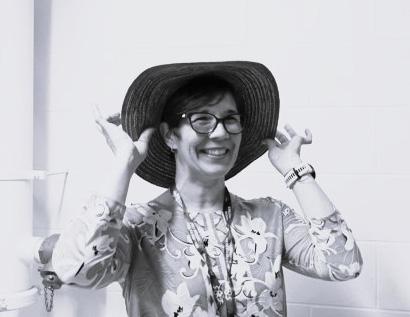
What’s Noe’s Duolingo streak?
a) 2,003
b) 589
c) 1,078
d) 42
What musical does Noe listen to on repeat?

a) Les Misérables
b) The Greatest Showman
c) Hamilton
d) Cats
To watch the full video, scan here!
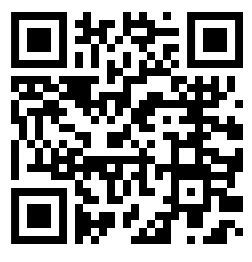
- Sarah Laliberte & Hazel Stasko
What’s Noe’s go-to pancake?
a) Blueberry Pancake
b) Potato Pancake
c) Chocolate Chip Pancake
d) Cheese Pancake
19 Multimedia
Have you ever wondered spaces lie in

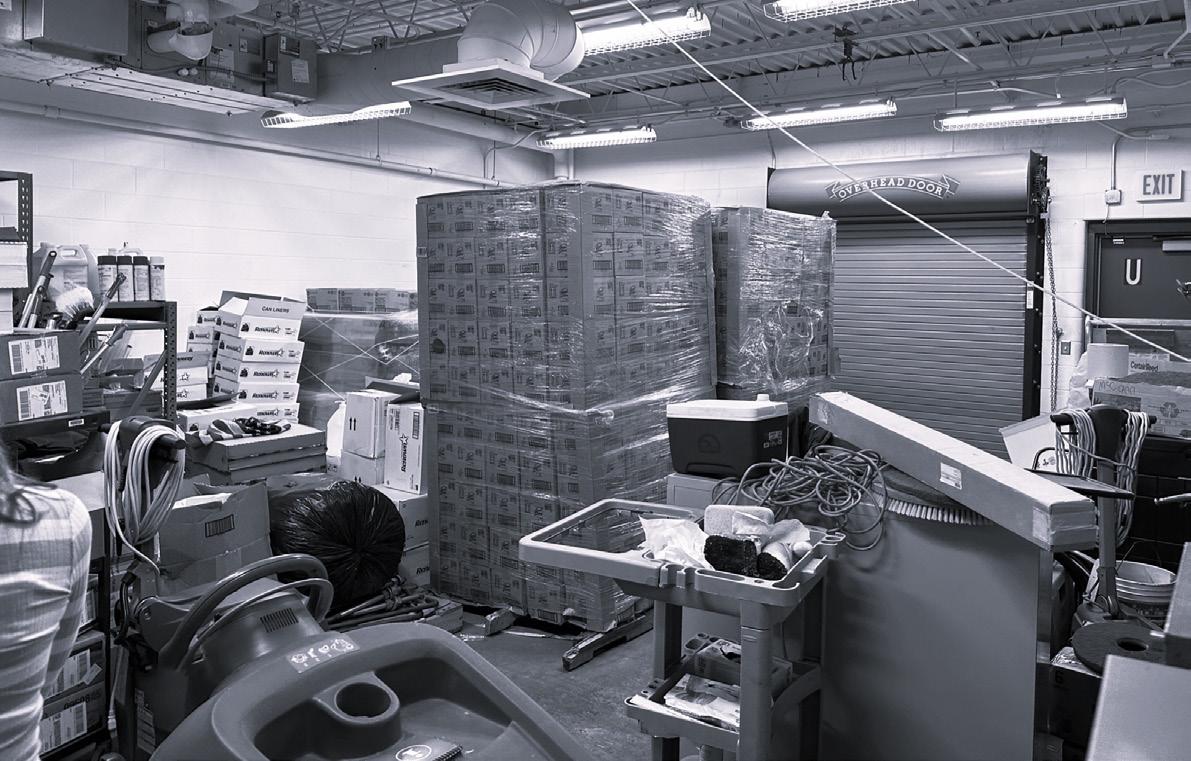

Libby and Grace investigate this in a podcast!

20 Multimedia
Scan the QR code to check it out!





21 Multimedia
wondered what secret in ORHS?
Some Extracurriculars Around Oyster River
You’re filling your water bottle when you look up and see all these colorful posters, but have you ever read them?
Each poster represents a different club, and many of these clubs go completely overlooked without a second thought. What are all these clubs? Who’s in them? Why should you ever consider joining?

Game Club
Anyone can join the game club. “It’s not just Catan or what people generally consider very nerdy, specific games—although there is that as well,” says Owen Nelan (‘24). “What I like is the variety and that there’s something to fit whatever interests you have.”
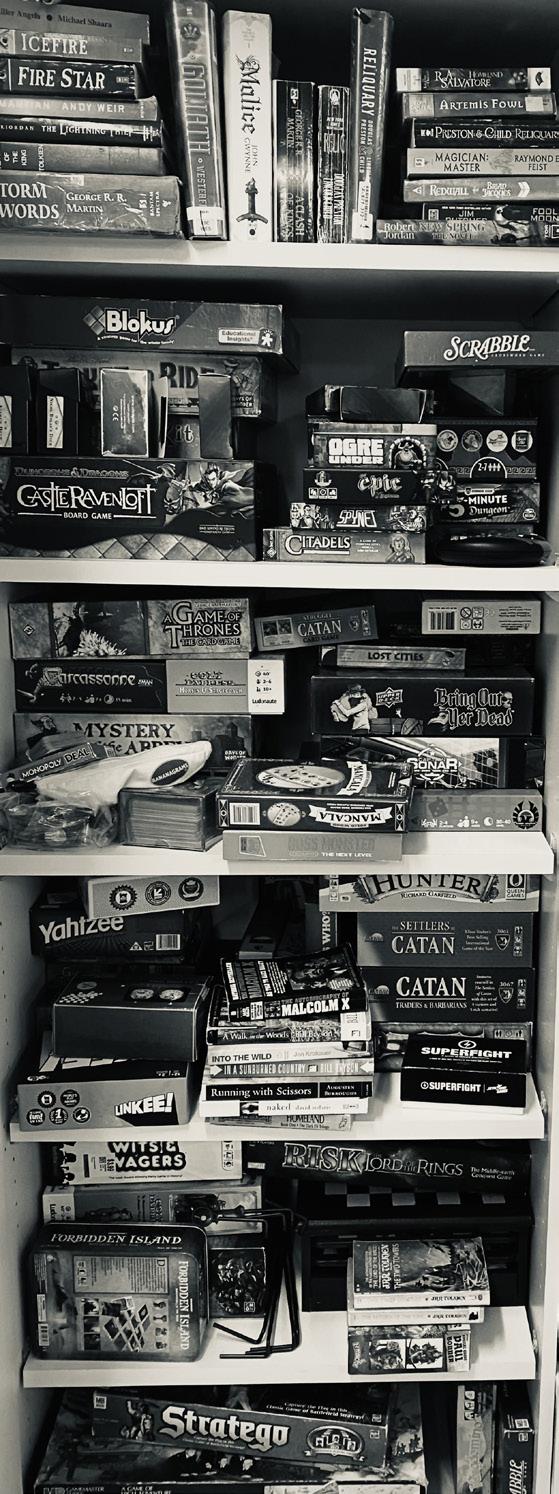
The club, advised by Trevor Garman, is full of students who like to play games. “If anyone wants to show up and run a game or bring a game from their home, you’ll find people willing to play,” says Nelan, “you’re never going to show up and then be left out. If someone sees you sitting there, they will invite you to play whatever it is they’re playing. It’s nice to have a community where you can show up and do something you like.”

The members of the club are always willing to try new games, from Poker to Catan to Magic: The Gathering. “People should join game club if they like board games at all. You don’t have to be a professional or an expert. You don’t have to be good at all,” says Nelan.
The club meets after school on Fridays in Trevor Garman’s room, T207.
22 Multimedia
Dance Team
The dance team is exactly what it sounds like: a group that likes to dance.
“Our goal is really just to choreograph and perform these amazing halftime shows and just make it a little bit more interesting and have something else to go to the game for besides just seeing your school’s team,” said Siena Schaier (‘24), one of the team’s captains.

Grace Kasper (‘25), co-captain of the team, explains that her favorite part of the team is “the community, because I’ve danced in a lot of different borderline toxic environments, and within dance team it’s always just about enjoying dance as it is, which is really hard to find.”
“We always make sure to hype each other up and keep that energy up,” adds Kasper. The only requirement to join the team is that you must have some sort of past dance experience, and all applicants have an audition to see if they fit the team. If you would like to join the team, contact Siena Schaier at 24schas@orcsd.org.
Debate Club
The debate club is for anyone looking to improve their skills in research or public speaking, or anyone who wants to debate. Kate Stone (‘24), one of the vice presidents, thinks “honestly, debate just makes you smarter because you learn all these new topics.”

The club attends a debate tournament once a month, where pairs from the club debate pairs from other schools, four times each. “Even though [tournaments] can be really tiring because we’re there the whole day, it’s just really nice to be with other people. We meet other people too, so I’ve made a couple friends that way,” said Mihira Govindarajula (‘24), the other vice president.
“I like it because I really like the people in it. Everyone’s super nice and accepting,” said Stone. “It’s just a bunch of different people who do different things, but all of them like to debate.”
Govindarajula has also found that “debate has definitely helped me with my public speaking skills. I know I used to have a good amount of stage fright, but now I feel comfortable talking in front of big crowds of people, and I definitely stutter less in general because I know how to articulat what I’m saying. Debate definitely helps you with research skills as well, so I feel like it’s just a really good experience.”
If you want to join the debate club, contact Ms. Sullivan at kasullivan@ orcsd.org.
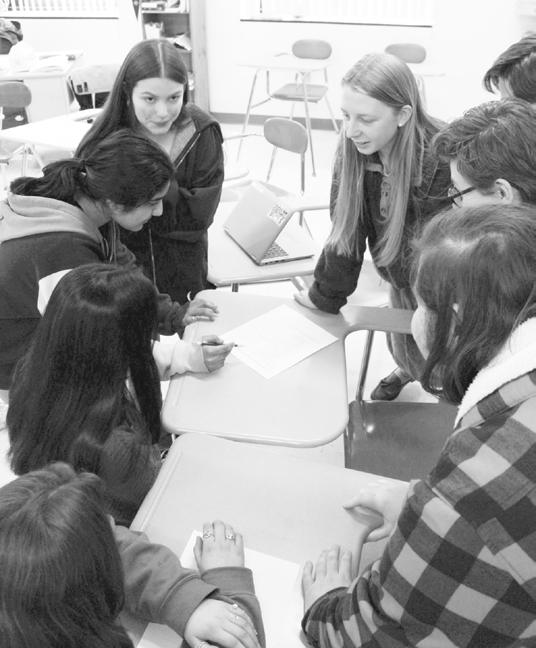
23 Multimedia
ImageCourtesyof:MadelynMarthouse
The Pearl Literary Magazine

The Pearl is the club that puts together the high school’s literary arts magazine, comprised of writings, art, and photography of students around the school.
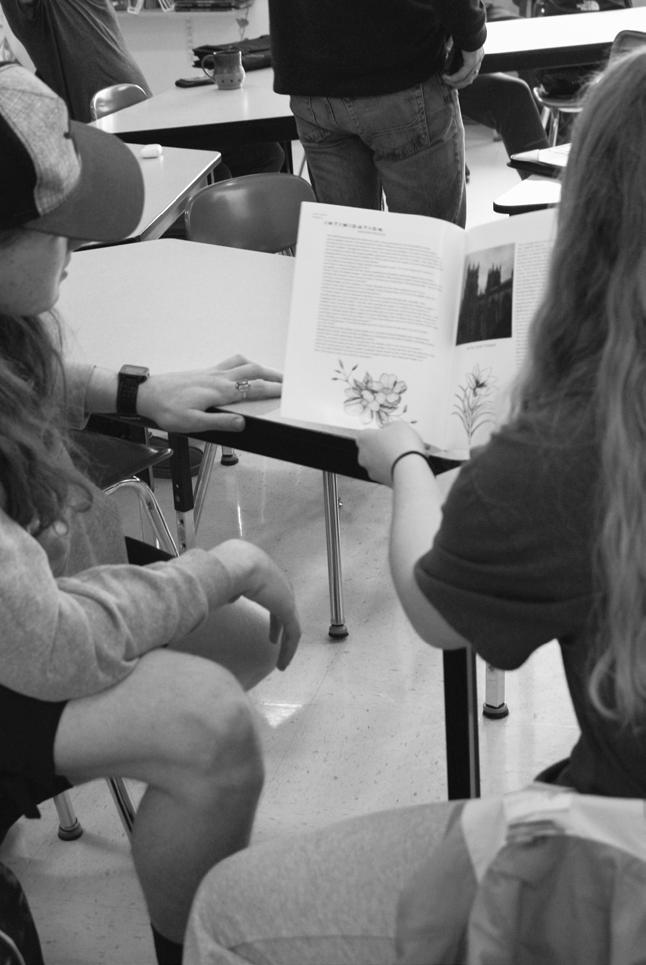
Everyone in the club has different roles: editors, advertisers, and fundraisers. Maeve Hickok (‘24), one of the fundraisers, likes how the magazine gives artists and writers recognition. “In sports you get people to clap for you. You get to have games and people come and watch you but that doesn’t necessarily happen with art and media. Being able to give people that voice and publish their work is really why I do it.”
Joining the team can help students develop their editing, outreach, and design skills. Logan Jabour (‘24), one of the lead editors, likes how he can design a magazine without having to write for one. “It’s kind of nice to be in [The Pearl] if you don’t want to be a journalist, but you still want to [create] a magazine.”
If you want to submit your work to The Pearl, or join the team, contact Shauna Horsley at shorsley@orcsd.org, or follow The Pearl’s Instagram at @ orhs.pearlmag.
Chess Club
The chess club is a place to practice, learn, and challenge yourself in the game of chess.

Felix Scarlat (‘26) and Sree Ventrapragada (‘26) both started the club this year, and so far, it has amassed a typical turnout of around 10 to 15 people.
The club so far has been “just playing the game, teaching other people, learning new things,” says Scarlat, but both he and Ventrapragada hope to develop it into the realm of chess tournaments.
Aside from being fun, playing chess in the club could “really improve your problem solving, how to make plans for the future, how to think, and it’s very good for strategy,” says Scarlat.

Ventrapragada thinks joining the club can help students develop critical life skills. “I think it’s good because it promotes logical and critical thinking.”
To join the club, stop by Marjke Yatsevitch’s room, T106, after school on Wednesdays.
24 Multimedia
Science Club


The science club allows students to create and imagine. “Students are able to pursue whatever interests them here,” says Sara Cathey, the club’s advisor.
The club gives students space to experiment and create what they want, outside of what ORHS science classes offer. Not only part of the chess club, Scarlat and Ventrapragada are currently building a self-playing trumpet and have both been enjoying the science club this year.
Scarlat likes the challenge and problem-solving aspects of the club. “It’s a neat way to test your creativity, and to see how far you can think.”

Ventrapragada thinks the club is “a great outlet and a way to bring your ideas to life and see how they function.”
The club has seen many innovative projects, like a music machine, a hydroponic planter, a mini wind turbine, multiple catapults, and some homemade motors. “It’s a nice safe place to be, everybody’s friendly.” says Cathey. “The sky’s the limit.”
If you’re interested, stop by Cathey’s room, L152, after school Thursdays.
If you’ve ever been interested in joining a club, why not try it out? It’s usually only an hour commitment, and you might end up enjoying it! As Scarlat says, “The more people that come in, the more fun it is for everyone.”
- Micah Bessette

25 Multimedia
Comfort Shows: Procrastination or Productivity?

It’s9:00pmonaTuesdaynight.Youhavetwotestsan essay due tomorrow and have no idea how you will get it all done. The stress starts creeping in; first the sweaty palms, then the racing heartbeat. You know you need to calmdownorelseyou’llnevergetanythingdone.So,you do what you always do when you’re stressed: open Netflix and let the relaxing sounds of your favorite sitcom instantlyrelaxyou.
Many people find themselves rewatching a favorite show or movie during stressful times. It can help take your mind off anxious feelings, as well as remind you of happy memories and spending time with people in your life that you love. With so much stress in students’ daily lives, comfort shows have become a popular coping mechanism. Just like any form of media, it can easily become a distraction and prevent someone from accomplishing what is causing their anxiety. However, when used responsibly, it can be a healthy and beneficial way to deal with the pressure of daily life.
“A comfort show is something that you can watch when you feel alone, stressed, or sad. Comfort shows, for me, are something I’ve already watched before, because I find it comforting to know what’s going to happen. You’re not going to feel stressed out watching it,” said Una Bleck-
mann (‘25). She finds herself watching shows when she has had a hard week and needs to decompress but also in the moments that she is stressed.
Most of the time a comfort show is something that you’ve watched before. For me, it’s Gilmore Girls. I’ve watched that show probably over five times, all the way through. I know every episode like the back of my hand, so, for me, the characters, music, and plot are very relaxing and comforting
School counselor Kim Cassamas has similar feelings to the sitcom Friends. Throughout college, she watched it every Thursday night, and in her adult life she has rewatched it when she feels stressed. “It’s nostalgic [and] brings back good memories,” Cassamas said.
Good memories are a big part of what makes rewatching a show so comforting. Bleckmann shared that one of her favorite shows, SellingSunset, is something she used to watch with her mom. “Me and my friends have a lot of shows that we rewatch together, so we all know what’s going to happen. It’s sort of a tradition, so then when I watch it by myself, I’m [reminded] of all the good memories connected to it,” she said.
One of the psychology teachers at ORHS, Dave Hawley, said, “There’s sometimes a sense of nostalgia. As people
26 Sports & Culture
age, there’s a level of comfort with how things were in the past.” This is why most of the time older shows, or shows that you watched when you were younger, become your ‘comfort shows.’
“I have an obsession with Glee, just because I’ve been watching it ever since I was little,” said Lydia Foster (‘24). She continued, “I find really chaotic, funny shows to be the most comforting, because there’s nothing necessarily bad that happens, and everything is usually solved in the end.” This is another reason why sitcoms like Friends
the looming deadline. That’s also referred to as procrastination. There’s a fine line as to how that plays out. It can become a distraction or avoidance behavior,” said Hawley.
Cassamas echoed this statement, and shared that it’s important when watching a comfort show to keep in mind whether it is hurting or harming. “If it takes you away from accomplishing the things that are creating that ‘anxiety,’ then [it’s not a good coping mechanism]. However, if it allows you to take a step away, decom-
or New Girl, Foster’s favorite, are popular choices for comfort shows. Foster also shared that she finds herself watching “definitely when I’m supposed to be doing something for school, because I usually procrastinate a lot.”
This is where some trouble for students can kick in. “It depends on why you’re watching. If you are super anxious about an upcoming project, and you are overwhelmed about getting the project done, you might find yourself watching TV [to] comfort your anxiety about

press, hit reset, and then be productive moving forward, then I think it could be healthy,” Cassamas said.
If comfort shows make you feel better during anxiety-inducing times, you are not alone. Cassamas said, “the predictability, the routine, and knowing what to anticipate is why kids watch shows or episodes over and over again. It’s a way to gain control in their life and, of course, it’s a source of comfort.”
- Libby Davidson
If you like to use comfort shows as a coping mechanism for stress in your life, here are a few things I would recommend for using it in a healthy way.
1. Don’t watch. This may sound weird, but I tend to only listen to the audio of my comfort shows versus having it on in front of me. If I can see the screen, I’m more likely to get distracted watching than if I’m treating it like background noise.

2. Stick to 22-minute sitcoms. As much as I love Gilmore Girls, I’m much more likely to get distracted by a drama like that than a silly, short show like The Office or New Girl. It’s also a good check-in. If your distracted after the show, it’s time to turn it off.
3. Assign tasks per episode. If an episode is 22 minutes long, set a goal for when it’s over. For example, complete one problem set for math or write the methods section of your lab report. Set a small, attainable goal that will make you feel accomplished and more productive.
27 Sports & Culture
“[Comfort shows] are a way to gain control in life and, of course, it’s a source of comfort.”
Bobcats in the Bay AProfileofGreatBayRowing
There are more than just fish in the Cochecho River. Cutting across the water in quads, eights, and singles is Great Bay Rowing (GBR), a community crew organization based out of Dover. GBR offers programs for middle schoolers through adults, teaching people how to row and competing across New England. Several Oyster River High School students have taken advantage of the high school team, discovering a love for crew, a new community, and lots of opportunities post-graduation.
“Rowing opens so many doors, both in high school and beyond,” said Hallie Cheyne, GBR’s head coach. “You meet incredible people, you get in great shape, and you learn important life skills like resilience, perseverance, discipline and teamwork. You get to travel to new and interesting locations (some of which are astoundingly beautiful), and you become part of a greater community that is filled with good, earnest, hard-working people.”
Katherine McEwan (‘23) has been rowing for the GBR women’s varsity team since fall of her sophomore year. “I liked being outside and being on the water,” McEwan said. She explained that being outdoors and constantly moving is very motivating, whereas “with other forms of exercise, you’re doing the same thing and you’re in the same place and it’s kind of boring. I think being outside makes it way more interesting.”
Another of GBR’s rowers, Greg Caron (‘25), says he got involved with the team because he “wanted to get more active and it was a great way to stay in shape.” He kept going with the team, though, because of the people on it. “The community is great,” he said. “We’re all very supportive of each other.”
“Beyond just being an amazing sport, we’re just such a nice community,” agreed team captain Eleanor Raspa (‘23). “One of the best things about rowing in particular, especially our club, is we aren’t connected to a school. [...] You could be someone popular at your school, you could be unpopular, you could be the nerd, the geek, whatever, and we’re just a big mixing pot.”

Cheyne also emphasized the positive team culture. She said, “I genuinely have never coached a group of athletes who are more supportive, welcoming, and friendly with each other. I share a simple rule at the start of the season: ‘don’t be a jerk.’ The athletes on our team have taken that and run with it, creating a community that is always looking for ways to help out and make each other a better rower.”
This sense of community is important to achieving success on the water, Cheyne explained. “Rowing is the ultimate team sport. Not only do all athletes need to be giving their best effort in a race, but they have to do it completely in sync with each other. Creating a fast boat depends on all rowers being incredibly precise and powerful as they balance and accelerate
28 Sports & Cultures
“Not only do all athletes need to be giving their best effort in a race, but they have to do it completely in sync with each other.”
a skinny carbon boat down a race course.”
In the narrow boats, rowers sit in a single row of two, four, or eight people. Learning this precision and balance that Cheyne described is vital, because, if oars cross or row out of line, it can cost boats the race — and even make them capsize. The rapid, constant movement of rowing is made even harder by the fact that rowers, facing backwards in the boat, can’t see where they’re going.
“That’s where coxswains come in,” said Raspa, who is a coxswain for both men’s and women’s boats. “You don’t really see them, but for basically any boat that has more than two people, coxswains are in the boat. They look at where they’re going, they steer the boat, and they have a microphone to yell what to do and encouragement.”
Coxswains “double as a mini coach on the boat,” Raspa explained. During regattas, coaches are too far away to give instructions to the athletes like they do in other sports, “so coxswains are there to relay what the coach would say if this was on land.”
In order to hone their skills, the high school athletes of GBR practice five days a week for two hours after school, plus daylong regattas every weekend. Crew has two “official” seasons, spring for short races and fall for long races, but the team has opportunities for indoor strength-building practices in winter and outdoor practices and races in the summer.
While the time commitment is big, Raspa says it’s manageable. “When I’m fully utilizing time in school, plus time before and after practice, it just kind of works out. For other extracurriculars, I usually pick stuff that happens during school, like book club [during flex], or volunteering like I usually do on the weekends.”
Still, all that hard work is worth it to the athletes. Raspa said that, by being a coxswain and captain, “I’ve gained so much confidence in myself in other parts of my life. I feel like I’ve gained leadership skills.”
In addition to being “really fun,” McEwan added that crew “gets you outside, which I think is very good for your mental health. Exercise is also good for your mental health, and being outside is good for your mental health. Put the two together, that’s efficiency for you!”

Crew is also a very scholarship-heavy sport, especially for women. Both McEwan and Raspa have been recruited to top colleges for rowing, and GBR alumni are racing for schools including Yale, Northeastern, Loyola, Ithaca, and Mercyhurst.
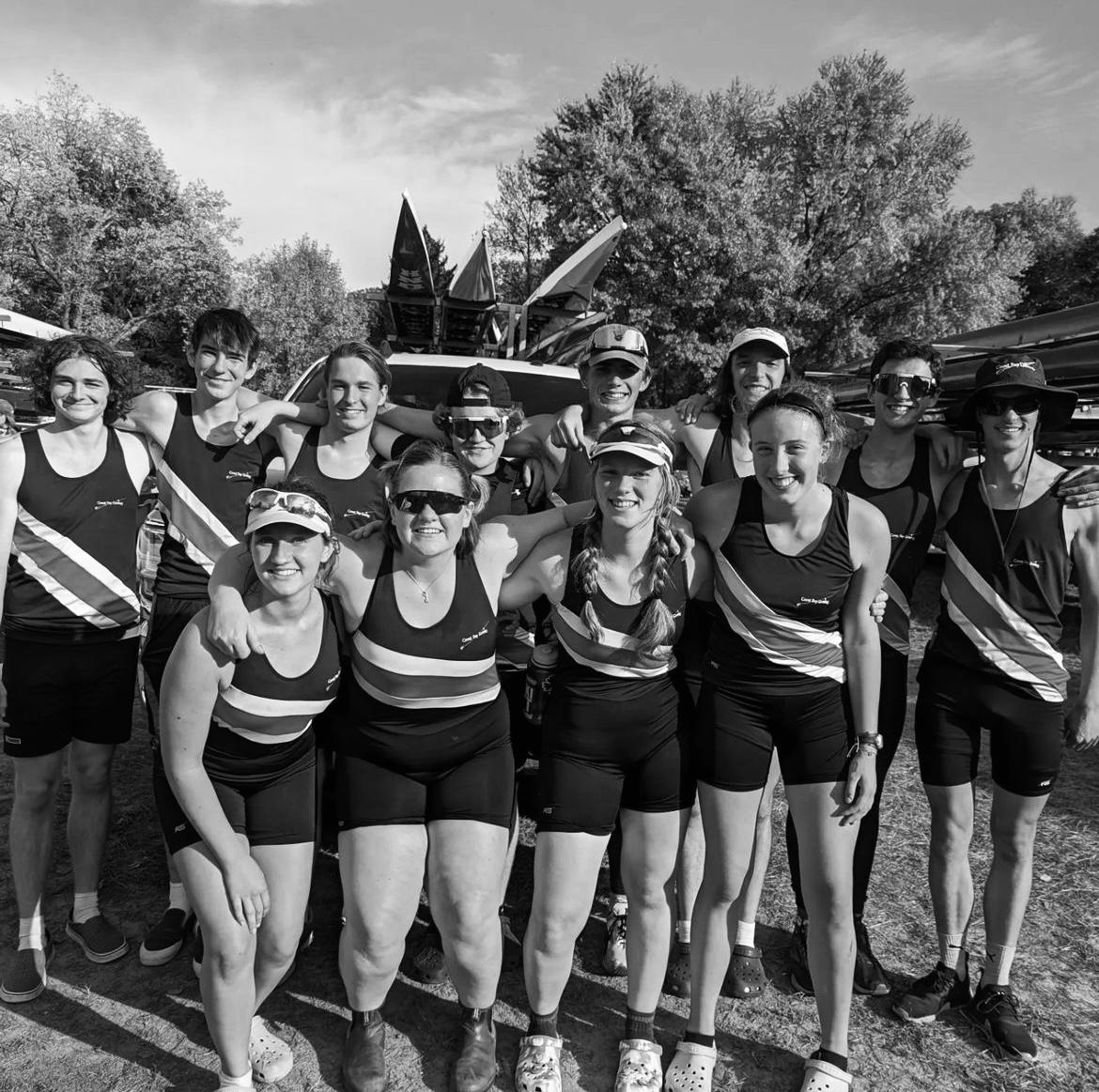
Recent seasons have been filled with success for GBR, and they’re expecting further success in the upcoming spring season. “We have a lot of athletes who are going to be very fast when they hit water in April,” Cheyne said. “Our current women’s quad (four people with two oars each) had an undefeated fall season, and we are planning on taking that momentum and making a run for Nationals qualification in May. I’m also excited to see how our U17 athletes come along this season. There is a group of boys who have all been rowing together since middle school and now at the varsity level they are ready to also push for a nationals qualification. On a more general note, spring racing is way more exciting than the fall—imagine the 100m dash, but with six, sixty foot long boots lined up next to each other. Oars are flying, coxswains are screaming, and the crowds are going absolutely wild on the river bank. It’s an atmosphere unlike anything else.”
There is still time to join the team. “Anyone who is interested in working hard and having fun while they do it should try rowing. We like people who are up for a challenge, who are friendly and willing to try something new,” Cheyne said. “You don’t need to have any experience to start rowing — new high school athletes join the Novice team, which is entirely made up of people within their first year in the sport.”
GBR’s spring season began on April third. Registration for their summer season is open now at www.greatbayrowing.org.
- Zoe Selig
ImagesCourtesy@greatbayrowingonInstagram
29 Sports & Cultures
Breakfast: An Egg-Cellent Way to Start Your Day
It’s 7:55 in the morning, you’re rushing down the stairs running ten minutes late to school. The bowl of cereal you’ve been dreaming about all morning is tempting to make, but you decide it’s not worth being marked tardy.



Throughout the media, breakfast is advertised as the most important meal of the day. With science backing up this idea, reflected through social media and doctors echoing this sentiment, breakfast seems like a vital part of morning routines. However, many high school kids continue to skip breakfast.
Breakfast quite simply means to “break” your “fast.” Whether that is the first thing you do after waking up or later in the morning depends on the person eating. However, when you break that fast could affect the way a student feels about food. Whether it is focus or energy, students feel that neglecting to eat before school has negative impacts.
Student Waverly Oake-Libow (‘23) is guilty of skipping breakfast before school. “I choose to put more time into sleep rather than eating.” Oake-Libow says that she thinks it is a bad habit, one that she wishes to break. “I do get really hungry during class, and it is a distraction.”
Oake-Libow eats a balanced breakfast every weekend and says she notices a difference in how she feels throughout the day. “I feel more balanced and put together. I have a lot more energy throughout the day and I am able to stick to a more consistent meal schedule.” Oake-Libow estimates it takes her about 10-15 minutes to make breakfast on the weekends. Although this does not seem like a large amount of time, Oake-Libow cannot fathom waking up ten minutes earlier each weekday.
An article written by the Better Health Channel titled “Breakfast” explains why breakfast is so important. One thing the article touches upon is that, when you wake up, the average person would have gone without food for around 10 hours. Eating breakfast in the morning replenishes the stores of energy and nutrients your body needs.
Sophie Royal (‘23) is a student who eats a full breakfast every morning, including scrambled eggs and some form of a bagel. “If I do not eat breakfast, I get really shaky, and I can’t think or focus.” Royal continued to emphasize the struggle to focus throughout the day if she has an empty stomach.
The common pattern at ORHS shows that this drastically impairs a student’s ability to focus. Both Royal and Oake-Libow mentioned that, when they skip a meal in the morning, all they can really think about during class is the next time they can eat.
Royal is also a student athlete and routinely works out before school. She says there is no way she could skip breakfast on those days without feeling shaky and unbalanced during the school day.
Another factor the Better Health Channel article focused on was the energy your body gets from breakfast. It says that the body’s energy source is glucose, which is stored as glycogen and is kept mostly in your liver and some in your muscles. When your body is fasting, it breaks down the glycogen and releases it into your bloodstream. This means in the morning your glycogen levels are low, meaning your energy levels will stay low until food is put in your body.
Nutrition teacher Nick Ricciardi does not necessarily agree with the statement that breakfast is the most important meal of the day. “I think all of our meals are important.” However, he thinks that skipping any meal is hurtful to your health, and breakfast is included in that. “It’s fueling you for the day, so you are literally breaking your fast. You need to start by drinking some water to get some of that hydration back. Then breaking that fast kick-starts your metabolism.”
The reason for consistently skipping breakfast in the morning always has to do with time. Mornings can be tough trying to get out of the door and to school on time, so making a balanced breakfast before school is unrealistic. Royal’s mother, who used to be a nutritionist, knows the importance of breakfast and says that skipping meals can be very harmful. For this reason, Royal’s parents prepare breakfast every morning. This is not a luxury that all students have, resulting in more students in the same boat as Oake-Libow.
Ricciardi mentioned a couple of solutions to this problem with quick meals to eat in the morning. “Oatmeal is good as long as you’re looking at the number of added sugars already in it. I’d rather see kids taking quick oats and adding things like cinnamon and raisins to give it that sweetness.” Another idea that Ricciardi presented in his Nutrition class, breakfast pizzas, is similar to meal prepping. “Breakfast pizzas are really good, because you can make it on a Sunday and then have a breakfast for each day.”
Although the school’s general opinion is that breakfast is important, it still falls low on the priority list of morning routines. Meal prepping or easy quick breakfasts are a great way to start this habit that will have positive impacts on how you feel! Check out Ava Gruner’s article about quick meals for high schoolers to learn more about what you could be making.
- Abby Deane
30 Sports & Culture
News you may have missed...


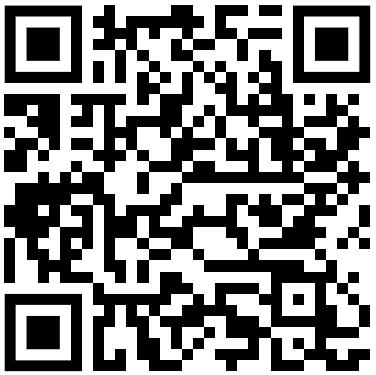


 What Goes into Calling a Snow Day?
Justin Partis (‘23)
Oyster River Sustainability Groups Host First Community Dinner Since Covid-19 Sarah Laliberte (‘23)
ORHS Senate Hosts Mental Health Panel
Grace Webb (‘23)
What Goes into Calling a Snow Day?
Justin Partis (‘23)
Oyster River Sustainability Groups Host First Community Dinner Since Covid-19 Sarah Laliberte (‘23)
ORHS Senate Hosts Mental Health Panel
Grace Webb (‘23)
Thank you to all of our wonderful sponsors!
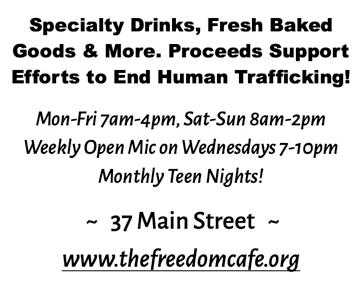

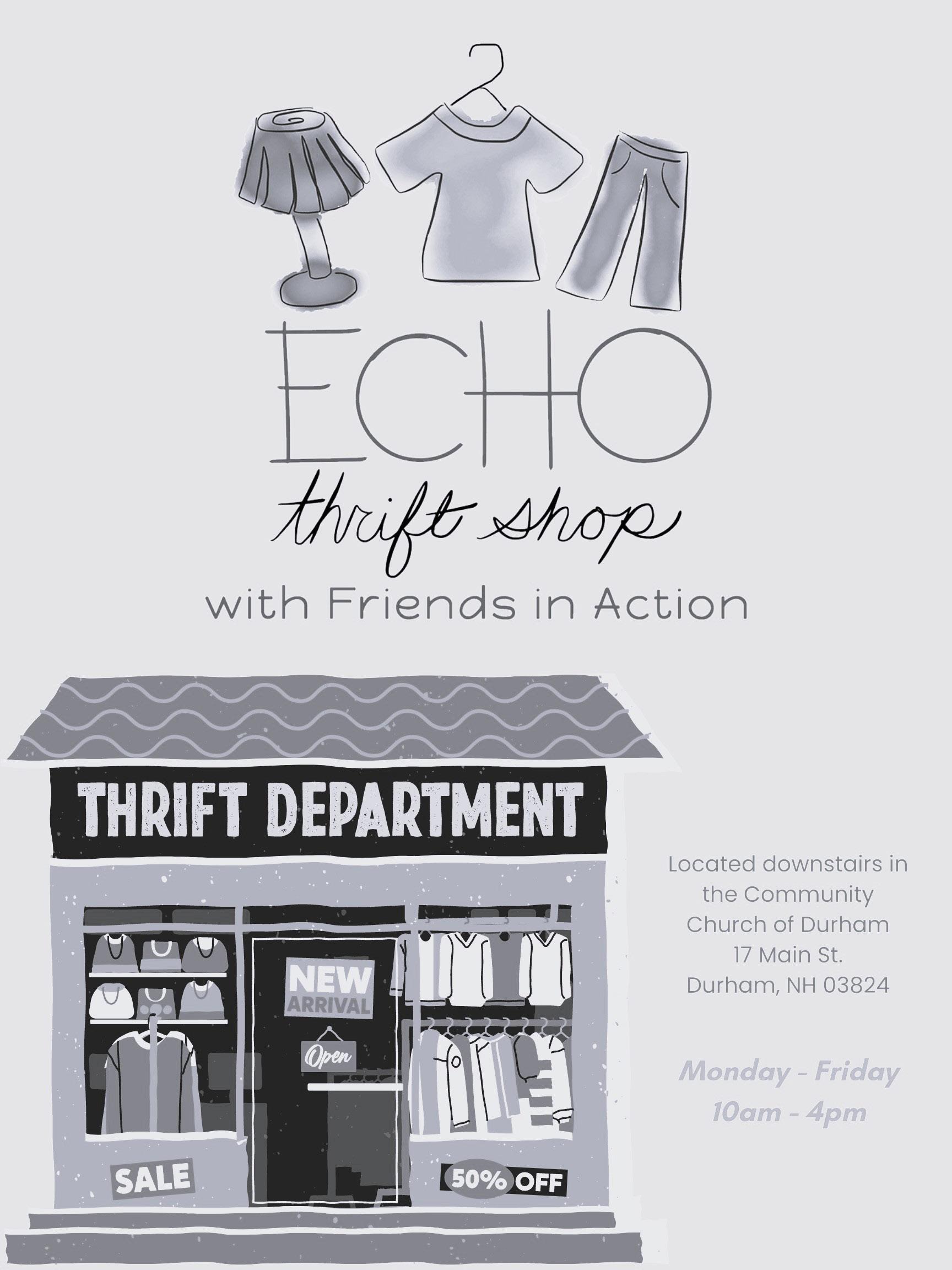
26

27

28

29



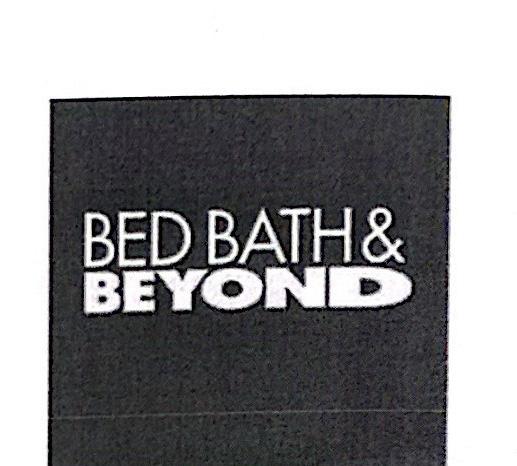


31
durhamdentalnh@gmail.com
www.durhamdentalnh.com


32





30 mor.news @mormagazine MOR Magazine Mouth of the River
If you are interested in sponsoring Mouth of the River, please contact us at mor@orcsd.org
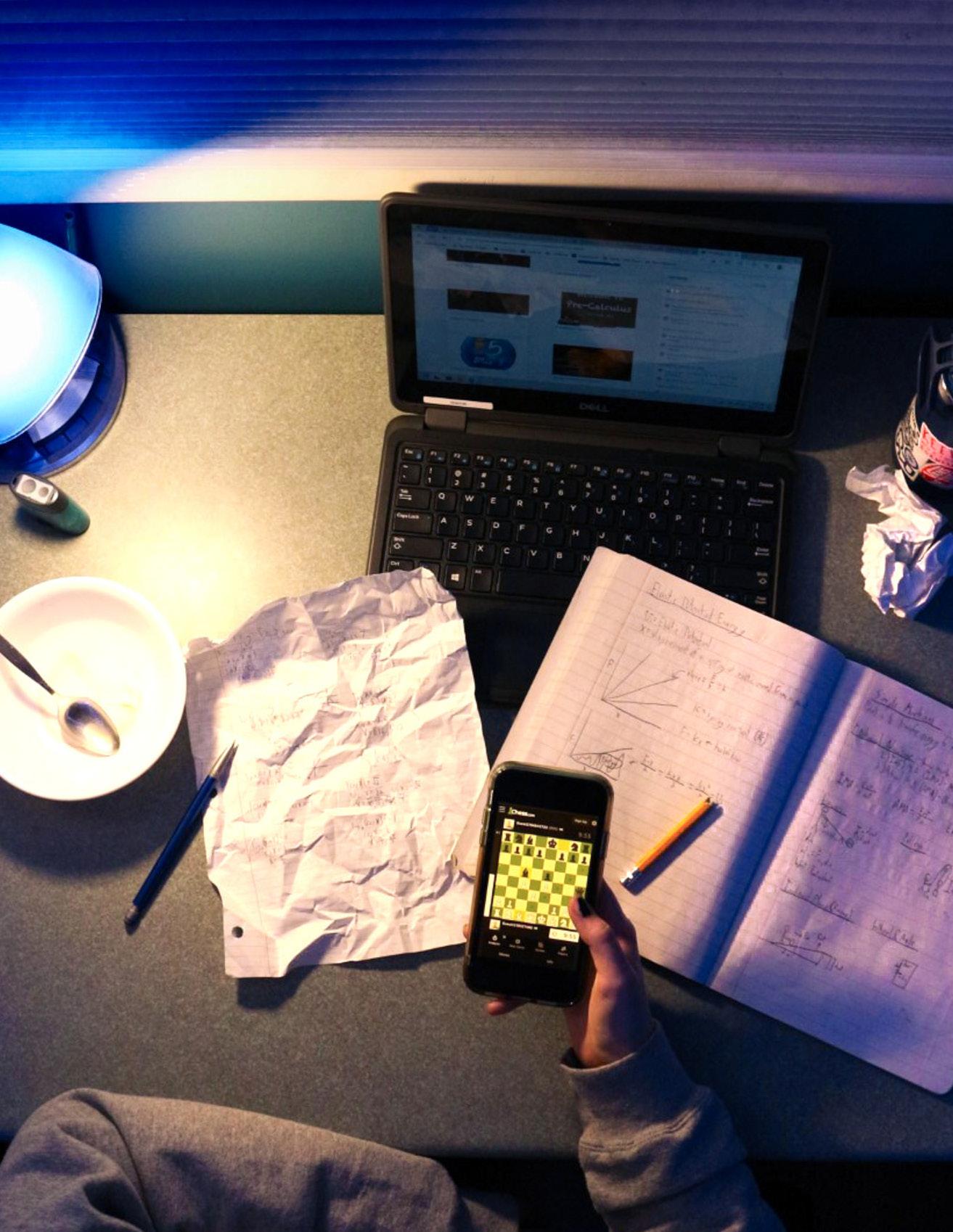















 Tess Brown (she/her) ('23) Co-Editor in Chief
Libby Davidson (she/her) ('23) Co-Editor in Chief
Zoe Selig (she/her) ('23) Co-Editor in Chief
Micah Bessette (he/him) ('24) Media Editor
Mia Boyd (she/her) ('24) Subscriptions & Distribution Manager
Abby Deane (she/her) ('23) Sports & Culture Editor
Ava Gruner (she/her) ('23) Social Media/Website Manager
Sarah Laliberte (she/her) ('23) Marketing Director
James Li (he/him) ('24) Archive Manager
Delaney Nadeau (she/her) ('24) Events Coordinator
Abby Owens (she/her) ('24) News Editor
Justin Partis (he/him) ('23) Features Editor
Hazel Stasko (she/her) ('24) Layout Editor
Grace Webb (she/her) ('23) Opinion Editor
Tess Brown (she/her) ('23) Co-Editor in Chief
Libby Davidson (she/her) ('23) Co-Editor in Chief
Zoe Selig (she/her) ('23) Co-Editor in Chief
Micah Bessette (he/him) ('24) Media Editor
Mia Boyd (she/her) ('24) Subscriptions & Distribution Manager
Abby Deane (she/her) ('23) Sports & Culture Editor
Ava Gruner (she/her) ('23) Social Media/Website Manager
Sarah Laliberte (she/her) ('23) Marketing Director
James Li (he/him) ('24) Archive Manager
Delaney Nadeau (she/her) ('24) Events Coordinator
Abby Owens (she/her) ('24) News Editor
Justin Partis (he/him) ('23) Features Editor
Hazel Stasko (she/her) ('24) Layout Editor
Grace Webb (she/her) ('23) Opinion Editor



































 - Grace Webb
- Grace Webb





































 What Goes into Calling a Snow Day?
Justin Partis (‘23)
Oyster River Sustainability Groups Host First Community Dinner Since Covid-19 Sarah Laliberte (‘23)
ORHS Senate Hosts Mental Health Panel
Grace Webb (‘23)
What Goes into Calling a Snow Day?
Justin Partis (‘23)
Oyster River Sustainability Groups Host First Community Dinner Since Covid-19 Sarah Laliberte (‘23)
ORHS Senate Hosts Mental Health Panel
Grace Webb (‘23)



















